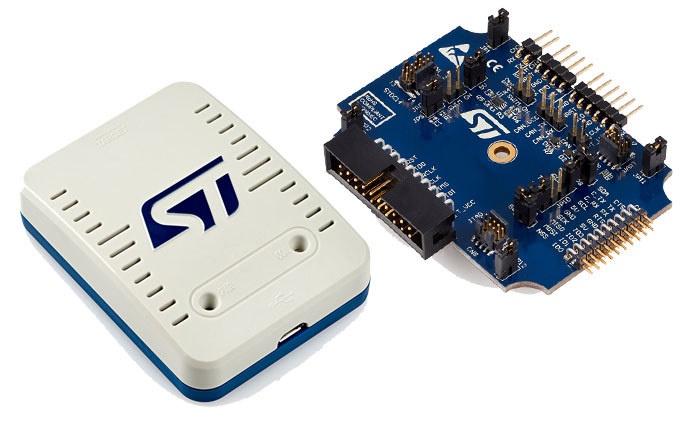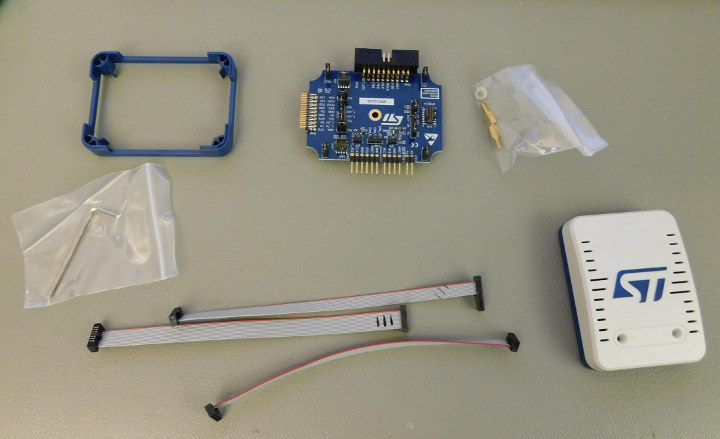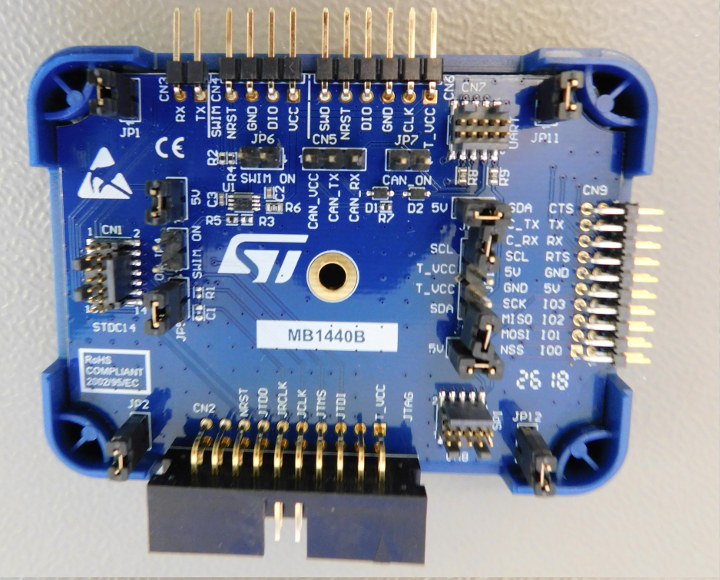STLink is the in-circuit debugger and programmer for STMicro STM32 and STM8 micro-control working with SWIM and JTAG/SWD interfaces. ST Microelectronics has now introduced STLink-V3 which also provides a Virtual COM port interface allowing the host PC to communicate with the target microcontroller through one UART, as well as bridge interfaces (SPI, I2C, CAN, GPIOs) which can be used for programming of the target through the bootloader for example.
 Key features of STLink V3 debugger:
Key features of STLink V3 debugger:
- Stand-alone probe with modular extensions
- Self-powered through a USB connector (Micro-B)
- USB 2.0 high-speed compatible interface
- Direct firmware update support (DFU)
- JTAG / serial wire debugging (SWD) specific features:3 V to 3.6 V application voltage support and 5 V tolerant inputs
- Flat cables STDC14 to MIPI10 / STDC14 / MIPI20 (connectors with 1.27 mm pitch)
- JTAG communication support
- SWD and serial wire viewer (SWV) communication support
- SWIM specific features (only available with adapter board MB1440):1.65 V to
- 5.5 V application voltage support
- SWIM header (2.54 mm pitch)
- SWIM low-speed and high-speed modes support
- Virtual COM port (VCP) specific features:3 V to 3.6 V application voltage support on the UART interface and 5 V tolerant inputs
- VCP frequency up to 15 MHz
- Available on STDC14 debug connector (not available on MIPI10)
- Multi-path bridge USB to SPI/UART/I2C/CAN/GPIOs specific features:3 V to 3.6 V application voltage support and 5 V tolerant inputs
- Signals available on adapter board only (MB1440)
- Drag-and-drop Flash programming
- Two color LEDs: communication, power
The company also highlights the modularity of the new debugger which can be expanded via additional modules such as the adapter board. You’ll find more technical details and software tools for STLink V3 on the product page, where you’ll also find a link to purchase the debugger for $35.
One of CNX Software readers already purchased one, and shared a few pictures giving a better look at the kit content and internal design.


You’ll also find lsusb output here. One downside is that STLink-V3 is not compatible with STLink-V2 so open source tools such as OpenOCD and stm8prog do not support it just yet. While the kit supports USB-I2C/SPI/CAN interface, and STMicro promises a host software API to allow target programming through SPI/I2C/CAN, it does not appear to have been released so far.

Jean-Luc started CNX Software in 2010 as a part-time endeavor, before quitting his job as a software engineering manager, and starting to write daily news, and reviews full time later in 2011.
Support CNX Software! Donate via cryptocurrencies, become a Patron on Patreon, or purchase goods on Amazon or Aliexpress




